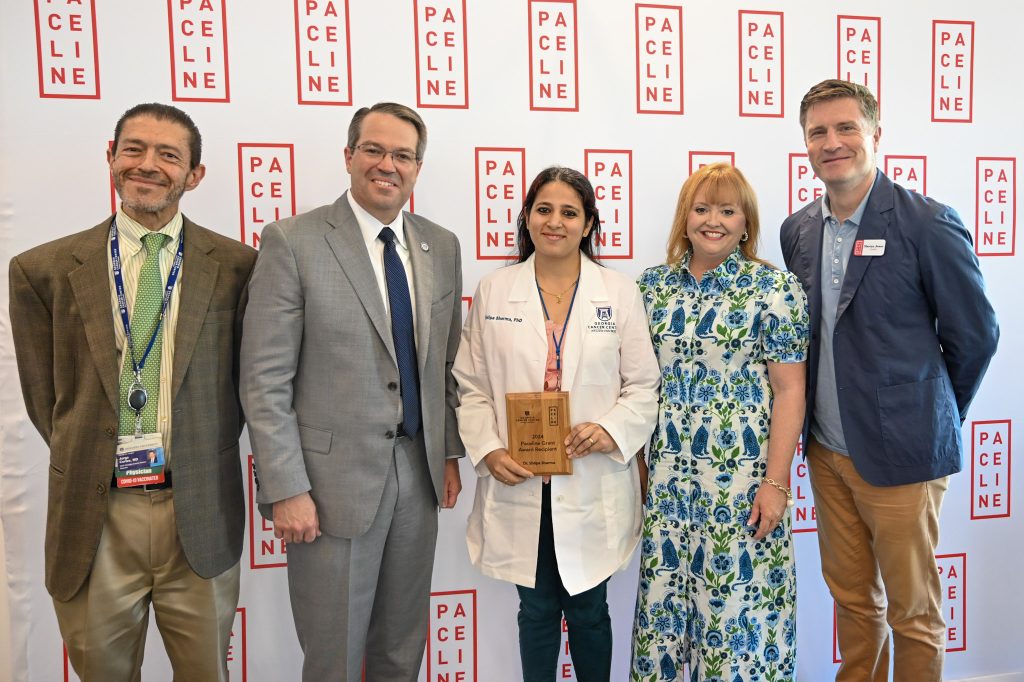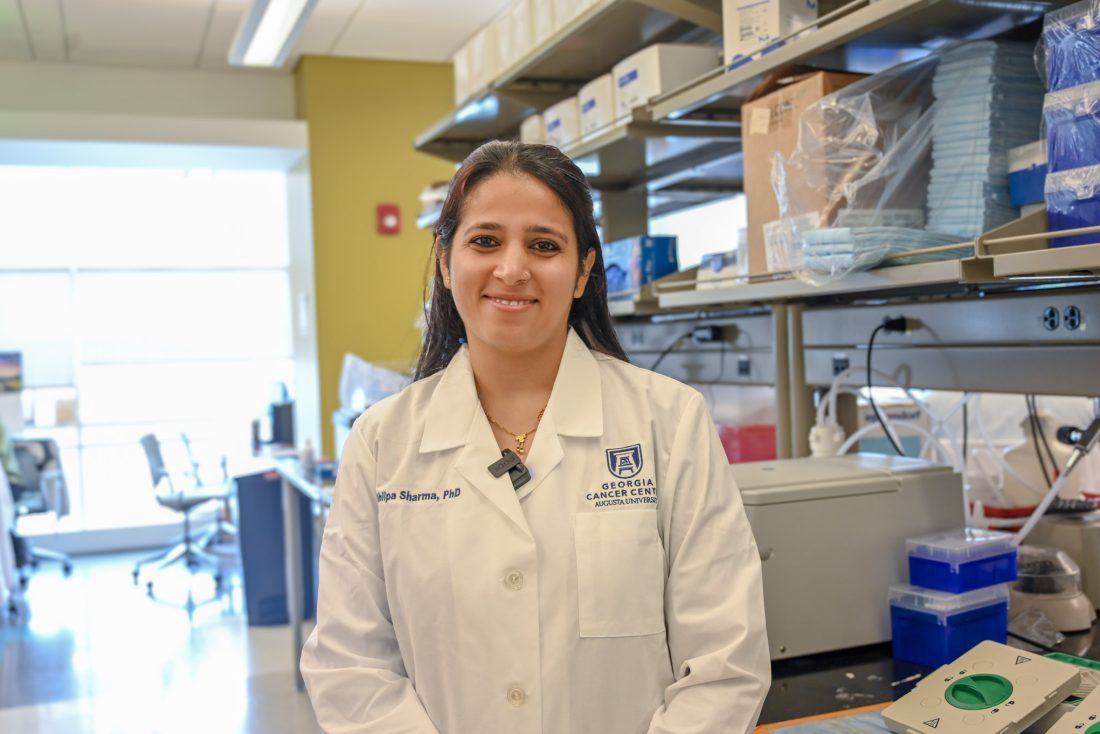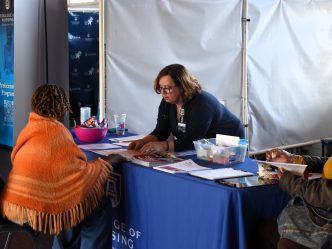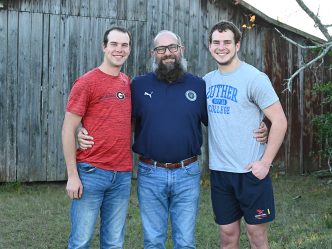According to the American Cancer Society, colon cancer is expected to cause about 52,000 deaths in America during 2025.
A researcher at the Georgia Cancer Center at Augusta University is hoping her treatment can one day reduce those numbers.
“This is a newer treatment approach, but the initial results have been promising,” said Shilpa Sharma, PhD, a postdoctoral fellow in the lab of Balveen Kaur, PhD.
Thanks in part to a grant from Paceline, Sharma is currently working on creating immunocytokines that can target CD73 while localizing the delivery of Interleukin-12, IL-12.

CD73 is an enzyme located in the tumor microenvironment that converts adenosine monophosphate, or AMP, into adenosine, which calms the immune system. Cancerous cells overproduce this enzyme to suppress the immune system and interfere with T-cell activity, thereby facilitating tumor growth. By blocking CD73, you can enhance the immune response against cancer. This type of treatment is called inhibitor therapy, as it is a drug that will block specific signals or cells to stop cancer growth
IL-12 is a type of immunotherapy that works by enhancing the body’s anti-tumor immune response. While it has shown promising results, its use is limited due to its causing systemic toxicities.
“If we don’t give IL-12 in a tumor-specific manner, it can create chaos in the body,” Sharma said. “The challenge here is having it localized into the tumor so that it will attack the tumor cells and leave the normal cells intact.”
With this fusion, Sharma can limit the levels of adenosine in the tumor microenvironment while providing IL-12 to provide an additional boost to the immune system’s response against the cancer.
Sharma plans to spend the next year gathering additional data to continue to build the foundation of this research. CD73 and IL-12 regulation are related to multiple types of cancers, which means that this work can be repeated in other cancers, depending on the results of this study.
“I am so grateful to Paceline for funding this research and allowing me to create new treatments against cancer,” she said.
Since 2019, Paceline has raised nearly $1.7 million for innovative cancer research and has funded over 30 researchers and their projects at the Georgia Cancer Center.
This year, Paceline is expanding its signature fundraising event, PaceDay, to make supporting cancer research more accessible for all, with walk and run options in addition to the bike riding option. PaceDay 2025 is scheduled for Oct. 5. Sign up by visiting the PaceDay website.
Discoveries at Augusta University are changing and improving the lives of people in Georgia and beyond. Your partnership and support are invaluable as we work to expand our impact.
 Augusta University
Augusta University




